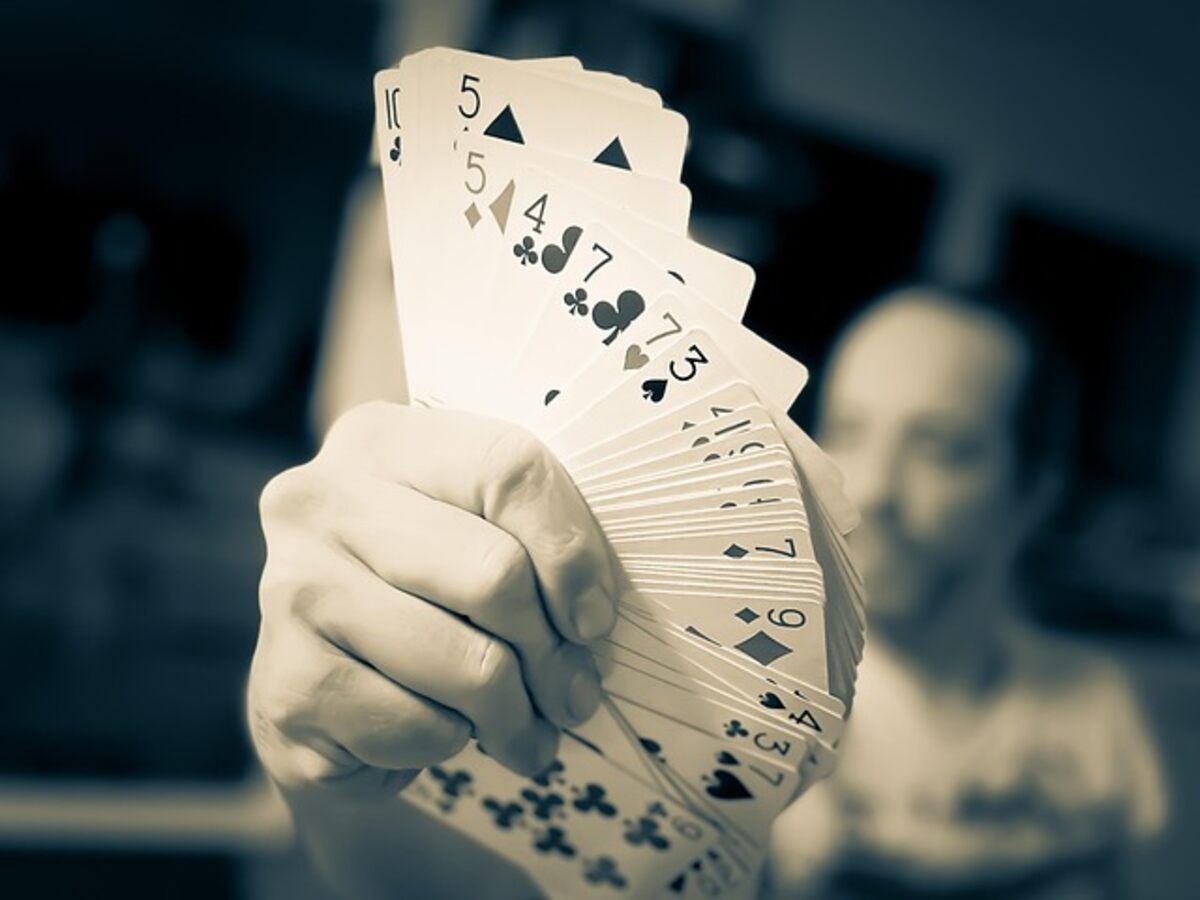Greetings to all poker aficionados! Whether you’re a newcomer to the world of poker or a seasoned card shuffler, there’s always room to elevate your game. Poker transcends the mere cards dealt; it’s an intricate dance of strategy, patience, and occasionally, a well-timed bluff. Today, we delve into transformative poker strategies that will empower you to recharge and compete like a true professional. What do you consider about 탑플레이어포커.
Mastering the Basics of Poker
Before diving into advanced tactics, it’s crucial to establish a solid foundation. Poker is a game woven with skill, strategic thinking, and a sprinkle of fortune. Familiarizing yourself with the rules and hand rankings is paramount for making informed decisions at the table. Understanding the hierarchy of hands, from the modest high card to the illustrious royal flush, is knowledge every player should possess instinctively.
Know Your Poker Hands
Grasping the various poker hands is essential for any player. From the unassuming pair to the majestic royal flush, knowing the pecking order is vital. Here’s a refresher: pairs, two pairs, three of a kind, straight, flush, full house, four of a kind, straight flush, and the royal flush. Mastering these hand rankings will not only boost your confidence but also sharpen your decision-making during play.
Understanding the nuances of each hand type can give you an edge. For instance, recognizing the potential for a straight or flush draw can inform your betting strategy and help you anticipate opponents’ moves. Moreover, familiarizing yourself with the probabilities of drawing certain hands deepens your strategic thinking.
The Importance of Position
Your position at the poker table can significantly influence your strategy. Acting last is a powerful advantage as it allows you to gauge your opponents’ actions before making your decision. Utilize this to your benefit by observing the betting patterns and tendencies of your opponents.
Position awareness goes beyond knowing when to act; it’s about leveraging your position to maximize value or minimize loss. In early position, play more conservatively as you have less information on opponents’ intentions. In contrast, the late position offers opportunities to bluff or value bet effectively, given the insights gathered from prior actions.
Understanding Poker Dynamics
Poker is not static; each game and table have unique dynamics influenced by the players and stakes involved. Being aware of these dynamics can inform your strategic choices. Recognize when a table is tight or loose and adjust your play accordingly.
Adapting to the table’s rhythm can be the difference between winning and losing. A tight table calls for a more aggressive approach to capitalize on opponents’ hesitancy, while a loose table may require more selective hand choices to counter frequent betting. Observing these dynamics sharpens your strategic adaptability.
Poker Game Tips to Up Your Game
With the basics in hand, it’s time to explore tips that can genuinely enhance your poker prowess. These insights are crafted to help you recharge and approach the game with heightened intelligence and finesse.
Patience is Your Best Friend
Poker is a marathon, not a sprint. Cultivating patience is crucial. Avoid the temptation to make hasty bets out of boredom or a silent table. Instead, wait for opportune moments and promising hands to make your move. In poker, it’s the patient players who often reap the most rewards.
Patience extends beyond waiting for good hands; it’s about controlling your impulses and maintaining discipline. Recognize that not every hand needs to be played. Folding frequently is not a sign of weakness but rather a strategic choice that preserves your chips for better opportunities.
Read Your Opponents
Poker is as much about deciphering your opponents as it is about playing your cards. Pay close attention to betting patterns, body language, and timing. Are they bluffing, or do they genuinely have a strong hand? Every subtle cue can provide insight into the cards they might be holding.
Developing the skill to read opponents involves a keen sense of observation and psychological acuity. Notice changes in demeanor when bets are made or called. Some players may exhibit physical tells, such as changes in posture or facial expressions, while others may have consistent betting habits that reveal the strength of their hands.
Bluff Wisely
Bluffing is an art form in poker, but it must be executed with precision. Excessive bluffing can render you predictable and vulnerable. Instead, select your bluffing opportunities judiciously and ensure your bluffs are convincing. The objective is to sow doubt in your opponents’ minds about their own hands.
Effective bluffing requires a keen understanding of your opponents and the context of the game. Bluff when the board supports the story you’re trying to tell, and be mindful of opponents who are prone to calling. A successful bluff aligns with the narrative of the hand and leverages your perceived table image.
Effective Bankroll Management
One of the most vital aspects of poker that even seasoned players can overlook is bankroll management. Properly managing your bankroll is essential to sustaining long-term success and enjoyment in poker.
Set a Budget and Stick to It
Before taking a seat at the poker table, establish a clear budget for how much you’re willing to risk. This is your poker bankroll. Adhere to it unwaveringly. The last thing you want is to chase losses and find yourself in financial distress.
Setting a budget helps cultivate discipline and prevents emotionally driven decisions. By defining a clear limit, you safeguard against impulsive bets that could jeopardize your financial well-being. Remember, poker is a game of skill and strategy, not a means to solve financial issues.
Know When to Walk Away
Recognizing when to walk away is a skill in its own right. If you’re experiencing a losing streak, it’s often wiser to step back rather than exacerbate the situation. Similarly, if you hit a significant win, consider securing those gains and leaving the table. Walking away can sometimes be the most strategic decision you make.
Understanding the importance of walking away ties into emotional control and self-awareness. Poker can be emotionally taxing, and knowing when to step away preserves your mental fortitude and bankroll. Develop the ability to detach from losses and wins, focusing instead on the long-term success of your poker journey.
Adopt a Long-Term Mindset
Effective bankroll management involves adopting a long-term perspective. Understand that variance is a natural part of poker, and short-term fluctuations are inevitable. By maintaining a long-term view, you can weather the ups and downs with greater resilience.
A long-term mindset helps you navigate the emotional rollercoaster of poker. Instead of fixating on immediate outcomes, focus on making sound decisions based on strategy and probability. This approach not only protects your bankroll but also enhances your overall poker experience.
Recharge Like Top Player Poker Pros
Ever wondered how top poker players maintain their edge? It’s not solely about the cards; it’s about mental preparedness and strategic readiness.
Focus on Mental Health
Poker can be mentally demanding. Taking regular breaks and ensuring you’re in the right headspace before playing is crucial. Stress and fatigue cloud judgment, so prioritize rest and focus to maintain a clear mind.
Mental health in poker involves managing stress, cultivating emotional resilience, and finding balance. Incorporate practices such as meditation, exercise, or hobbies to recharge and maintain mental clarity. A well-rounded lifestyle enhances your cognitive abilities at the table.
Stay Educated
Top players are perpetually learning. Engage in continuous education by reading up on new strategies, watching tutorials, and learning from seasoned professionals. The more knowledge you acquire, the better equipped you are to outmaneuver opponents. In poker, knowledge is a formidable weapon.
Education involves more than just studying hands; it’s about understanding game theory, psychology, and statistical analysis. Delve into poker literature and seek out mentors or communities where you can exchange insights. Staying informed keeps you ahead of the curve and sharpens your competitive edge.
Practice Makes Perfect
Consistent practice is the cornerstone of poker mastery. The more you play, the more refined your skills become. Experiment with different styles and strategies to discover what suits you best. Online poker offers a convenient platform to practice without the pressure of a live table.
Practicing involves not only playing hands but also reviewing past games to identify areas for improvement. Analyze your decisions, learn from mistakes, and adjust your approach accordingly. Embrace challenges as opportunities for growth and continuously strive to enhance your poker acumen.
Final Thoughts
Poker is an exhilarating fusion of skill, strategy, and a touch of luck. By mastering the basics, exercising effective bankroll management, and committing to lifelong learning, you can revitalize your poker game and compete like a pro. Remember, the essence of poker lies in enjoying the game while playing intelligently. As you approach the tables, do so with confidence, patience, and a well-formulated strategy. Best of luck, and may the most astute hand prevail!


